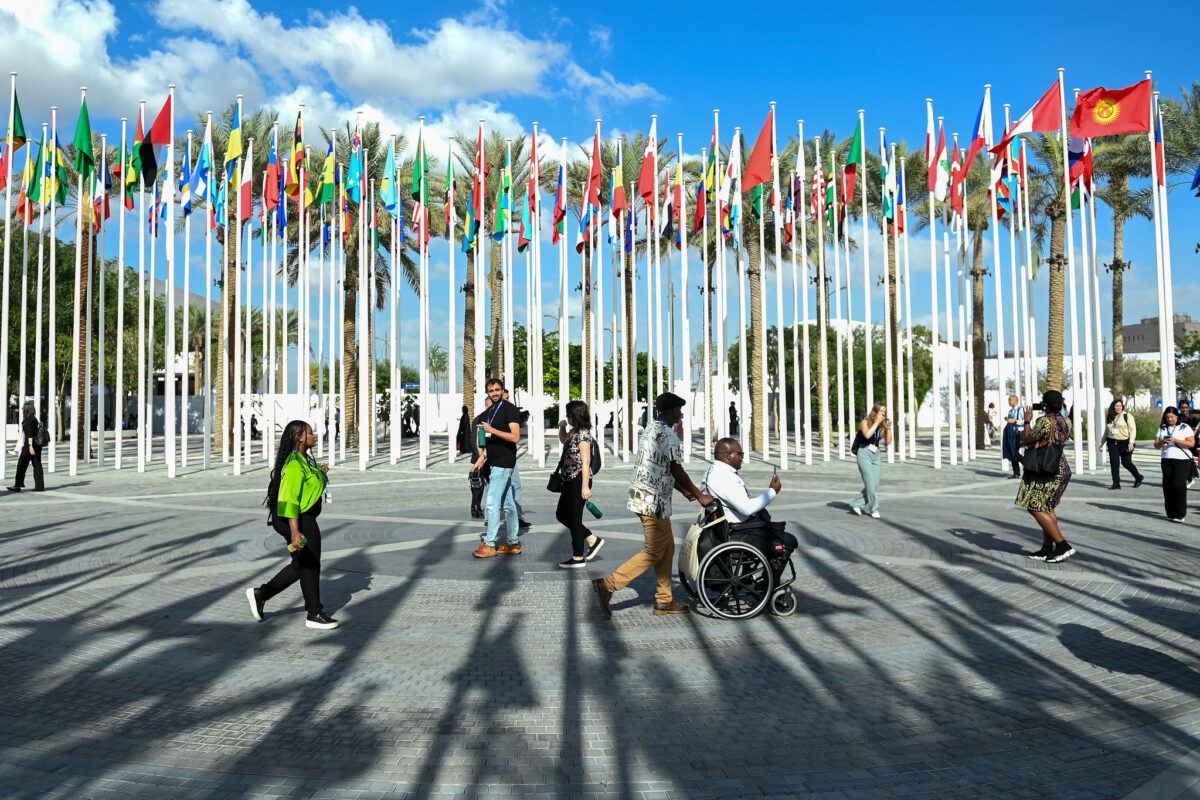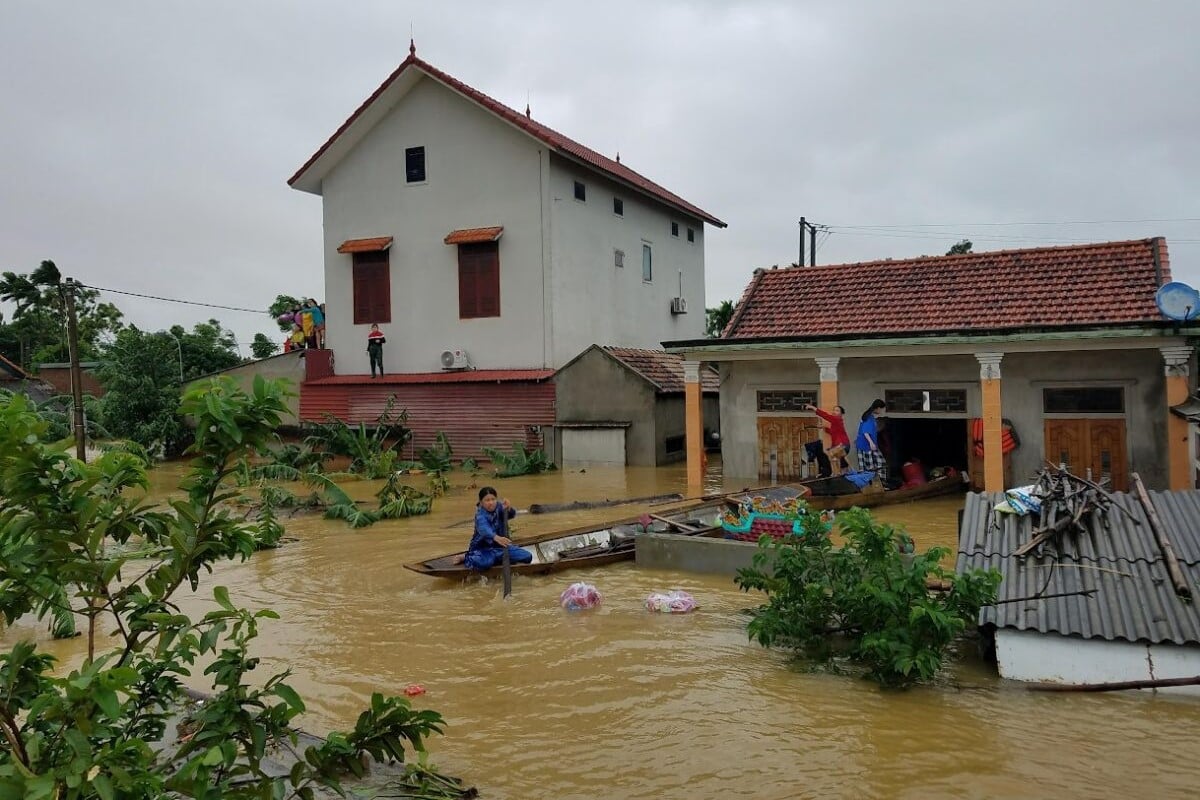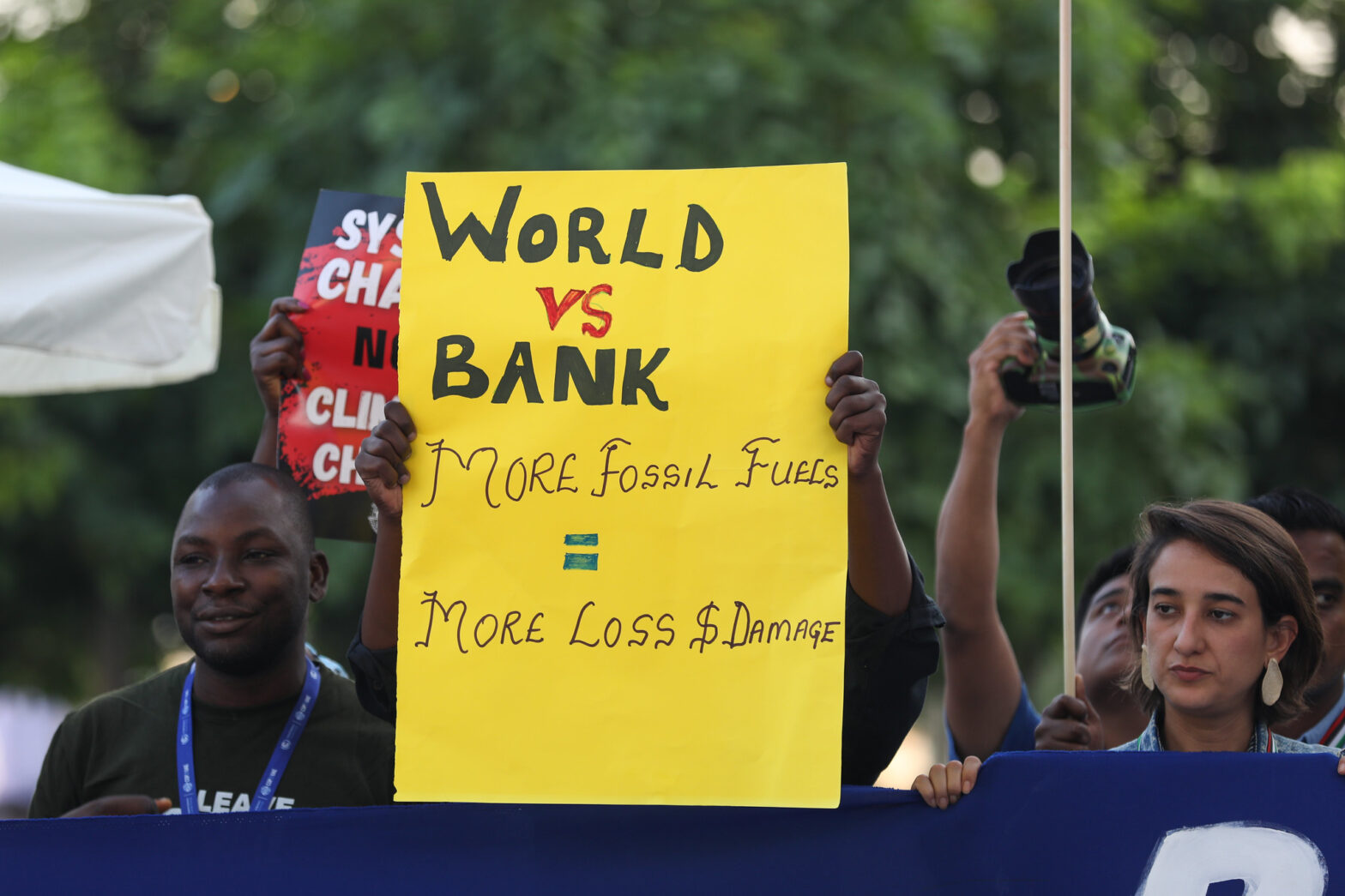DUBAI, UNITED ARAB EMIRATES – At COP28, the lower Mekong countries are seeking funds, including for loss and damage, to increase climate resilence and achieve net zero by 2050. But this assistance may come at a cost, and a quest to prove whether they are “vulnerable” or not.
Since Thursday, delegates from Cambodia, Laos, Thailand and Vietnam have actively participated in the climate summit and side events in Dubai to signify their commitment to cut emissions, and the need to secure climate funds.
One of those instruments is the loss and damage fund, and nearly all the world’s nations agreed to kick off the fund on the first day of the climate summit.
The fund aims to assist developing countries that are “particularly vulnerable” to the adverse effects of climate change, including extreme weather events and slow onset events. Globally, climate change led to a GDP loss of 6.3% in 2022.
However, there is an unresolved question over which countries will be eligible for the fund, or how to identify which countries are vulnerable – and this will likely be at the center of negotiations throughout this week.
The Global Climate Risk Index ranked Myanmar (2nd), Thailand (9th), Vietnam (13th) and Cambodia (14th) in the top 20 among 180 countries most suffering from extreme weather from 2000 to 2019.
Many deadly disasters have been recorded in the region, including the 2008 Cyclone Nargis that killed more than 140,000 people in Myanmar and Thailand’s 2011 severe floods that affected 13.6 million people.
Nithi Nesadurai, the Director and Regional Coordinator of the Climate Action Network Southeast Asia, suggested the whole region of lower Mekong countries should be eligible for the loss and damage fund.
“The region has countries in the world’s top 10 countries faced with harsh climate impacts. If the fund’s criteria are to prove vulnerability, some data will prove it,” he said.
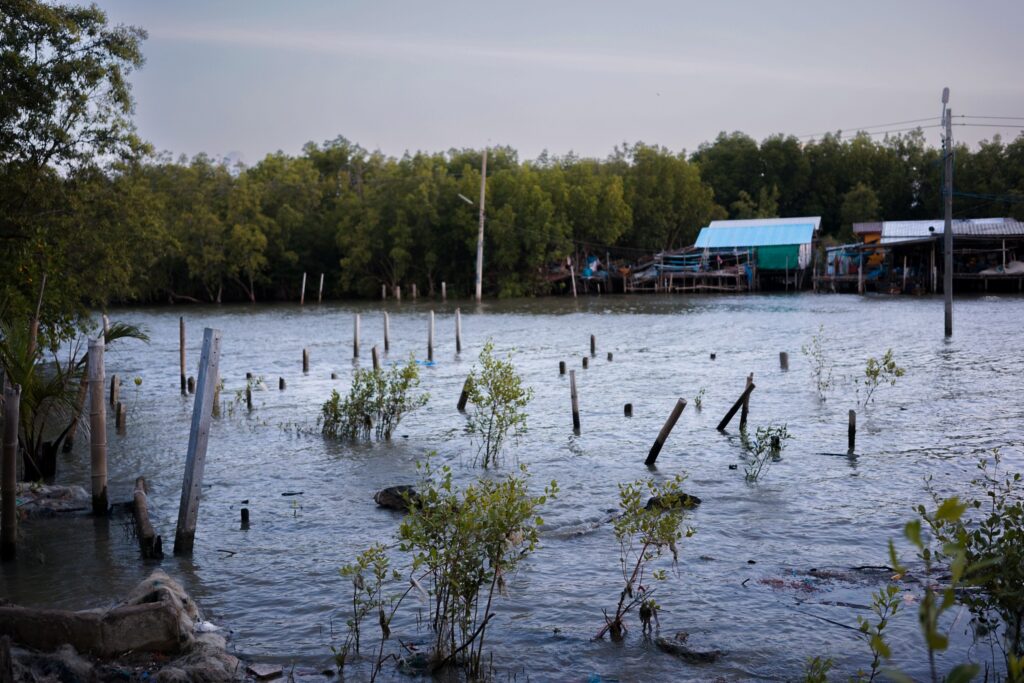
Despite the high risk of facing climate change impacts, however, it’s uncertain if all the lower Mekong countries will be able to obtain the fund.
Myanmar, which did not send delegates to the COP this year, needs financial resources the most due to its low capacity to cope with climate impacts. But the country has been sanctioned by the international community since the bloody 2021 coup.
Thailand is also in a tough spot due to its advancing economy, which resulted in the slashing of foreign financial aid in the past two decades. But it has not yet become a rich nation with adequate resources to cover all climate losses.
Thailand alone faced 146 climate abnormalities, leading to a loss of US$7.7 billion between 2000 and 2019, according to the Thailand Development Research Institute.
Phirun Saiyasitpanich, Director of Thailand’s Department of Climate Change and Environment and a prominent member of the Thai negotiation team at COP28, emphasized that the discussion on loss and damage should focus on identifying those severely affected rather than solely on determining who is economically disadvantaged.
“The G77 plus China group, in which Thailand participates, has been discussing that this new finance initiative must operate fairly. All countries enduring loss and damage caused by climate change should have the right to access this fund.”
World Bank president Ajay Banga said during the COP28 side event panel that the loss and damage fund is just “at the beginning” of the process and it could be some time next year before the money is put out to help countries on the ground.
The World Bank will manage the fund in the next four years, he said, but will not be the one deciding who should get the money. This will be done by a governing board that needs to be created and should have representation from both donor and recipient countries.
Mostly loans
Vietnam, on the other hand, has moved ahead to secure $15.8 billion from the Just Energy Transition Partnership (JETP) – the financial mechanism launched by wealthy nations to help developing countries cut coal use.
The fund, comprising 98% in loans, will be given to Vietnam over three to five years to help the country accelerate the renewable energy transition and achieve net-zero emissions by 2050. Vietnam is the second Asian country after Indonesia to reach the JETP deal since its launch at COP26 in Glasgow.
On Friday, Vietnam’s Prime Minister Pham Minh Chinh announced the Resource Mobilization Plan (RMP) on the sidelines of COP28, along with European Commission President Ursula von der Leyen. The plan identifies priority investment areas under the JETP and a framework to evaluate and monitor the just outcomes.
“We anticipate that Vietnam will be able to mobilize international support through the fund,” said Pham during the announcement. “We can’t achieve ambitious goals without technical and financial support from international partners.”
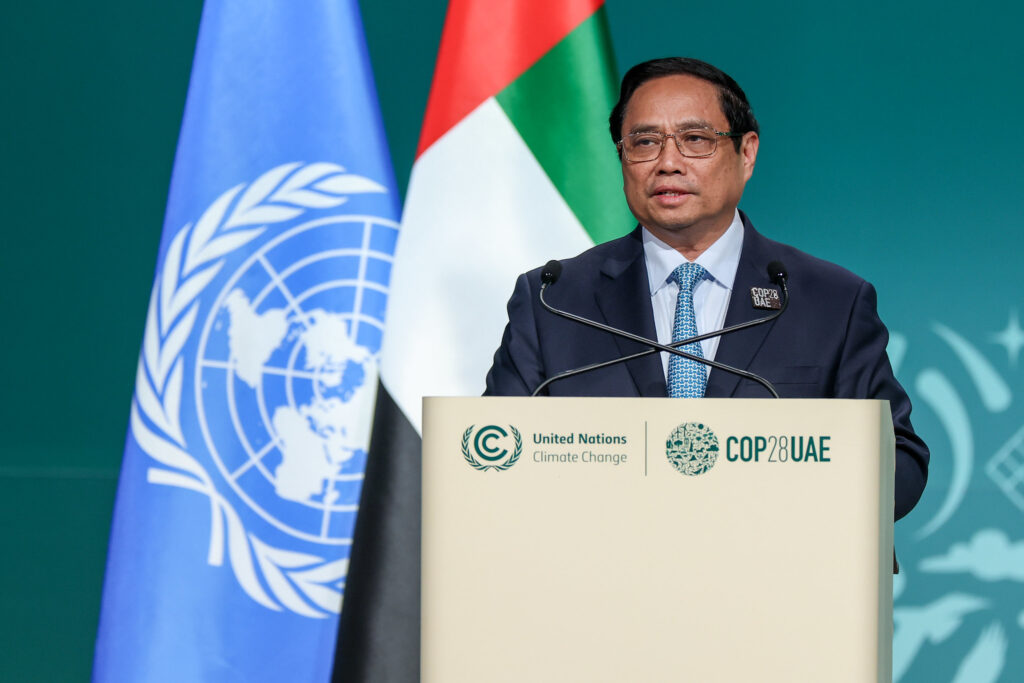
Despite the fund availability, many countries have raised concerns that the loans will eventually turn into accumulated debt.
This makes many developing nations feel reluctant to get more money for green transition initiatives, especially after the Covid-19 pandemic that hit the worldwide economy and forced many countries to borrow more.
Public debt in Vietnam is 34% of GDP, which is not considered risky, according to the International Monetary Fund.
On the other hand, Thailand’s public debt per GDP is about 61% and will likely hit nearly 70% as the country has borrowed from its Covid relief plan, making the Thai delegates stand firm to prioritize seeking grants.
Market-driven solution
“We will propose projects that need support from the international community for boosting the carbon credit market and other measures, including the promotion of electric vehicles, low methane rice farming and floating solar farms,” said Phirun from Thailand’s negotiation team at COP28.
The carbon market is an instrument preferred by international financial institutions, as it is seen as a market-driven solution to mobilize finance from wealthy to poorer nations while bypassing the challenge of getting more rich countries to pledge money.
It is also seen as an unavoidable alternative for some countries that are reluctant to obtain loans for a green transition. However, the challenge remains on how to ensure the accountability and transparency of the carbon market – and this is one of the key issues being discussed during COP28.
“We would not allow greenwashing but work with the communities and locals to make sure it’s not just to make money for someone but benefits all,” said Phirun. “We will not focus on any one aspect but a holistic one. Otherwise, we will not achieve any goal.”
Among the lower Mekong countries, Thailand is the most advanced in establishing the carbon market. It has launched the voluntary emission trading system that facilitates more than 360 projects run by government officials, communities and the private sector.
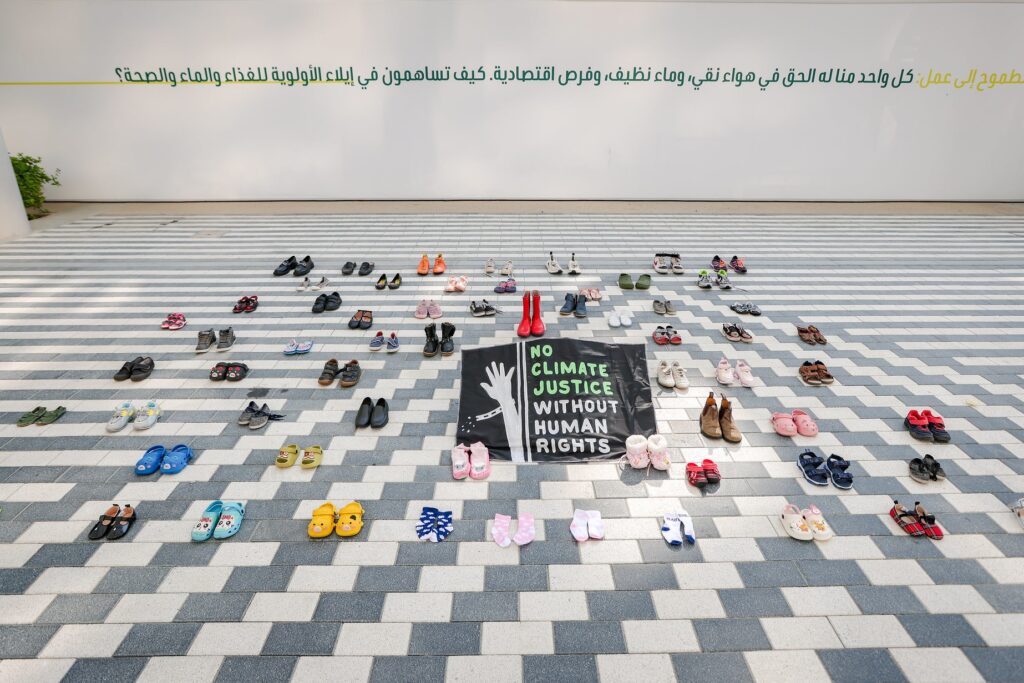
However, some local communities have criticized the scheme for inadequate participation, especially in reforestation projects that overlap with the forest community watch groups that many rely on for their livelihoods.
They are concerned that the carbon credit projects will violate their rights to use resources in the forests or push them out of the forests.
Tara Buakamsri, the Thailand Country Director for Greenpeace Southeast Asia, urges the government and relevant sectors to prioritize phasing out fossil fuels, one of the most effective ways to cut emissions, rather than placing all hope on the carbon market.
“You need to make sure that the market will truly benefit the world and the people, not the lucrative carbon brokers … Otherwise, the carbon credit market will be a new form of colonization,” said Tara.
The story was produced as part of the COP28 Climate Change Media Partnership Reporting Fellowship co-organized by the Internews’ Earth Journalism Network and the Stanley Center for Peace and Security. It was first published on Prachatai and edited by the Mekong Eye editorial team.
Find other COP28 articles from the author: Where is Thailand in the boiling world? and What is on the table?


